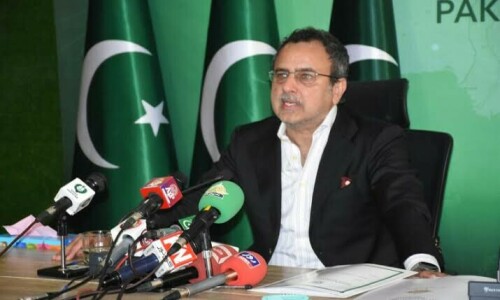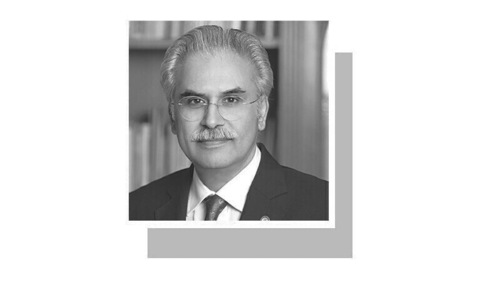KARACHI, May 6: Speakers at a meeting on Tuesday urged the government as well as civil society organizations to work jointly so that the issues being faced by women could be solved.
Speaking at a reception organized for the newly elected parliamentarians by the Aurat Foundation, they stressed that the issues being faced by women were too serious and too many, and unless the government and NGOs joined hands, it would be very difficult to solve these amicably and provide relief to women, who were the disadvantaged section of society.
Sindh Assembly Deputy Speaker Shehla Raza said her party remained committed to the repeal of all laws considered discriminatory towards the weaker sections of society. She said the Pakistan People’s Party had fixed an employment quota for women, but it was abolished by subsequent governments. However, the party planned to revive this so that women could get due representation in every field. She said the party had previously established women’s police stations, banks, etc and would take more steps to provide equal opportunities to them.
Sindh Social Welfare Minister Nargis N.D. Khan said that though there were over 7,000 registered NGOs in the province, more than 70 per cent of these were non-functional. She said efforts were being made to bring about a change in the law so that such “paper-NGOs” could be de-registered, and only those organizations that were fully functional and were working efficiently could further expand their operations.
She said she was also looking into the issue of many government buildings which had been handed over to private parties by the previous set-up. The minister said it was a pity that the government could not provide relief to deserving people, which was its responsibility, and handed over the social welfare assets to others.
Sindh Information Minister Shazia Marri said that though many women had become parliamentarians or many of them had been given cabinet posts by the PPP, the party was struggling to empower women so that they could solve their issues themselves and did not have to look to others for solutions.
She said her party did not believe in the ‘NAB (National Accountability Bureau) kind of accountability’ that was used to tame opponents, but the PPP believed in fair and genuine accountability and urged civil society to keep a watch on the working of the government and come forward with guidance if any flaws were detected. She said the previous government had signed an MoU for Thar coal with a firm that did not exist. “Such cases would be investigated and the culprits would be exposed and punished, according to the law,” she said.
‘Elite groups’
Retired Justice Shaiq Usmani said the majority of women’s organizations had become elite groups, which met and discussed issues being faced by poor women in luxury hotels. He urged them to work at the grassroots level and try to solve issues and improve the conditions of women passengers in buses, help create better and gender-friendly workplaces and to try and create awareness regarding women’s rights among poor women.
Anis Haroon of the Aurat Foundation and Uzma Noorani of the Women Action Forum highlighted some of the issues being faced by women. They suggested that the parallel judicial system (jirgas, anti-terrorism courts, Shariat courts) be abolished, discriminatory customs like karo-kari (murder on pretext of honour), vani (marrying away women in barter) etc be declared illegal, the rule of law be established and society be demilitarized and illegal weapons be seized, civil society be included in the proposed Truth and Reconciliation Commission, land reforms be carried out, landless farmers be given lands, social justice be done, approval of projects be taken from the local people, social sector budget be enhanced, etc.
Lala Hassan of the Aurat Foundation asked one of the speakers – a minister – how she was criticizing the previous government as the major partner in the previous set-up was now a coalition partner of the present government. “Earlier there were 45 ministers and within a few weeks, this government now also has more than 41 ministers, so what is the difference?” he asked. Nargis Rehman of the Karachi Women Peace Committee said that while accountability was good, she wondered what kind of accountability would be carried out by the government whose top leadership had been ‘cleansed’ through the controversial NRO (National Reconciliation Ordinance).
Karamat Ali, Noor Naz Agha and others also spoke. PPP MPAs Shama Mithani, Farheen Mughal, Shamim Ara Panhwar, Kulsoom Chandio, Rashida Panhwar and Nusrat Abbasi of the Pakistan Muslim League-Functional also attended the reception, in which a large number of representatives of civil society organizations participated.











































Dear visitor, the comments section is undergoing an overhaul and will return soon.